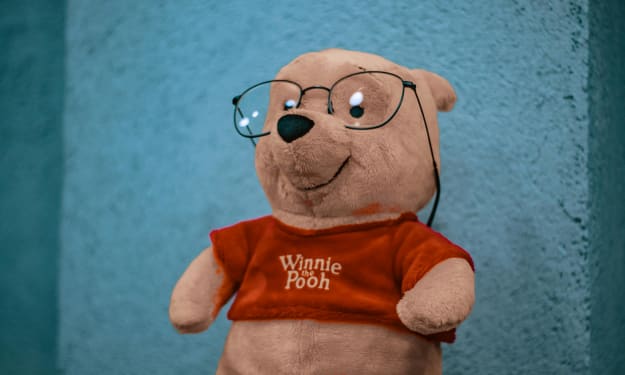
Arnold is in his seventies now, sitting at his dining room table, trying to write. In his twenties, Arnold was at his prime. He wrote four catchy songs that touched all the right notes and deserved a generous amount of YouTube covers. In his thirties, Arnold co-authored a memoir titled Writing Songs Well Known. Although the critics were hyper-critical, the general public gave the book a decent rating. After that, Arnold drifted off into the unknown. It was partially his choice, as Arnold could live satisfied on the earnings from his work and his investing strategies. He bought a small house and worked at a nearby bookstore. In his fifties, Arnold was approached once by a journalist, who wanted to know what he was up to. That was it.
For fifty years, Arnold worked part time at the bookstore. He wrote hundreds of unpublished short stories and about fourteen poems (even though he hated poetry; “It’s too high strung for me,” he once said). Arnold tried dating, but he preferred the solitude of his work and his independence. Life suited him. But at seventy-five, Arnold couldn’t write anymore. He thought about publishing, but couldn’t stand the thought of the spotlight, much less rejection. His family, a sister with four kids and three grandkids, asked him to publish: “The money could help the kids go to college.”
One night, Arnold sat at his dining table, which he never dined at, and picked a random story he would send to a few publishers. It was a story about a kid who could draw something and have it appear out of thin air. The kid got zealous and drew an amazingly detailed black hole. The story ended there. Three weeks went by and Arnold received four rejections. He thought that was enough. He still was making money off royalties and his 401k. “Good enough,” was Arnold’s saying. Complacency set in. And Arnold died at the age of seventy-seven, a pretty decent number. Arnold’s passing barely made the obituary, but his inheritance went to his family, most of it. A small portion went to the bookstore he worked at, specifically to the owner, as a thank you for having him on board for so many years. George, who was fifty-eight, took the money and invested it for his soon-to-come grandkids (he hoped).
At Arnold’s funeral his sister spoke kindly enough, but they had been distant when Arnold stopped publishing. George, the bookstore owner, showed up. He was the only non-family member who stayed and certainly the most respectful one. It seemed Arnold’s sister was upset that she didn’t receive all the funds Arnold had. She ignored George as much as possible. When George gave his condolences, Arnold’s sister stared above him and said, “thanks.” Afterwards, George drove to the bank and set up an investment account for the money Arnold gave him.
The teller, a young lady in her mid-30s, invited George to the back, where she opened several safety deposit boxes. George wasn’t sure what to expect, but the teller handed him a folded paper and left. George opened the lined paper.
George,
Thank you for giving me 50 years with books. I never quite got along with people, but books are great. In these boxes are my stories...and poems. Publish them if you wish, burn them if you please. I’m sure what I gave you will suffice, but if these stories can do anything more for you or your family, that will make me happy. I’m dead, of course, but who knows what’s after that last breath?!
Thanks,
Arnold
George decided to publish the stories.
About the Creator
Nick Bucci
Teacher. Writer. Photographer. Mainer.






Comments
There are no comments for this story
Be the first to respond and start the conversation.